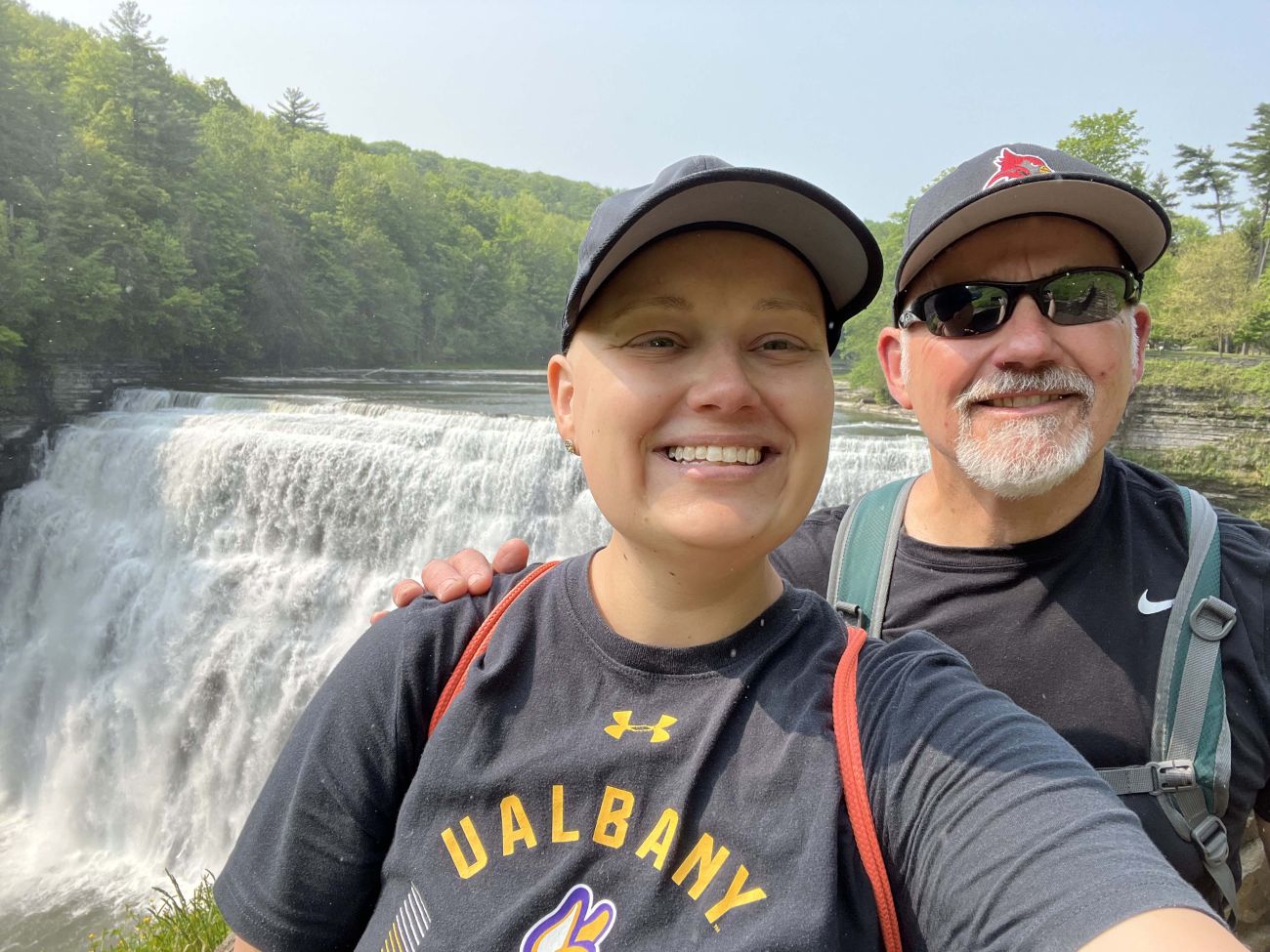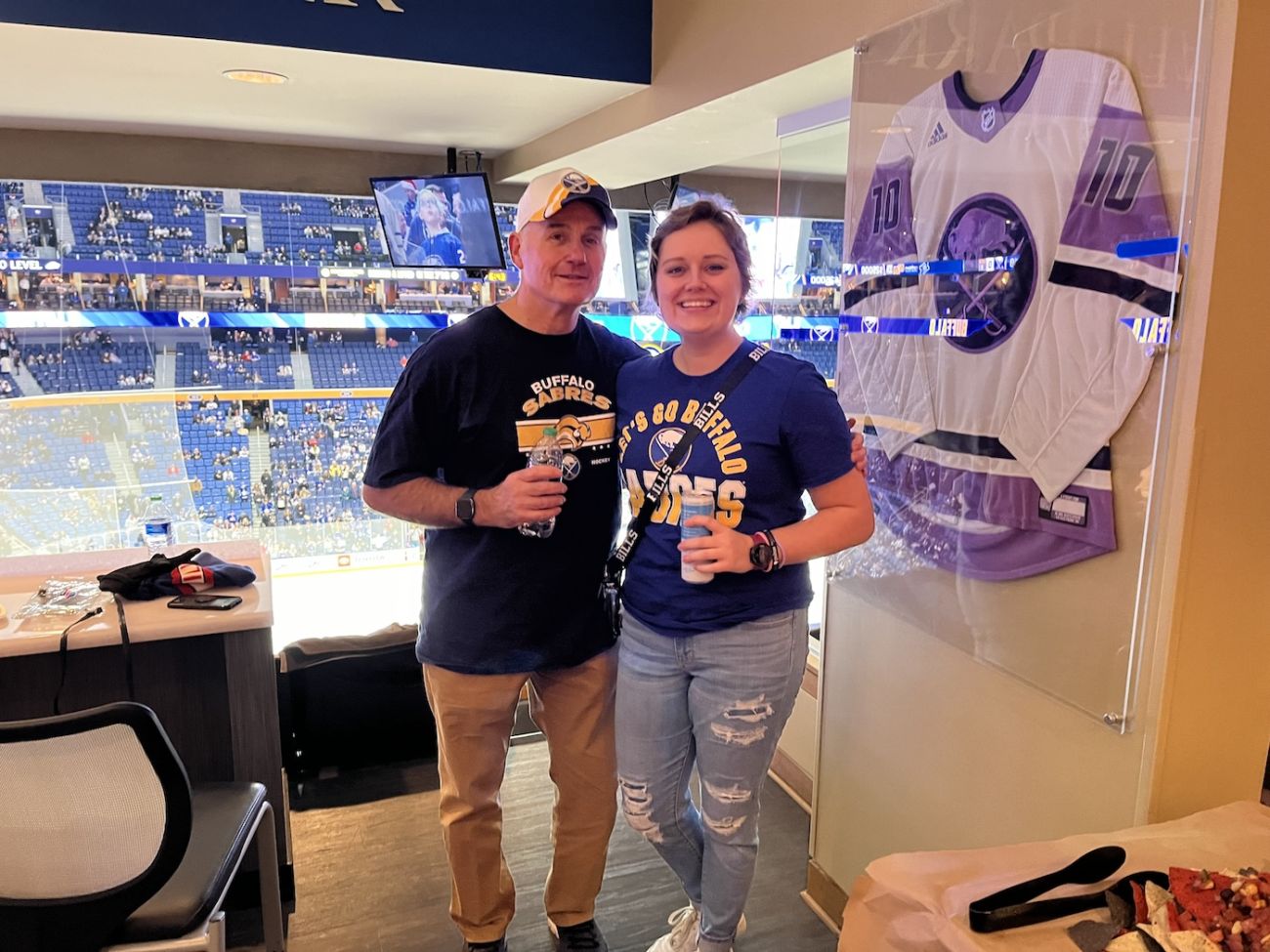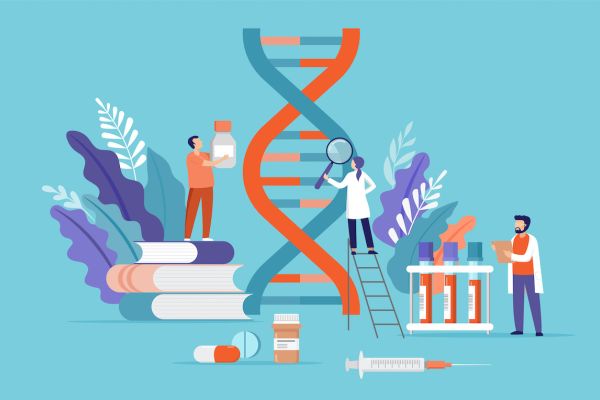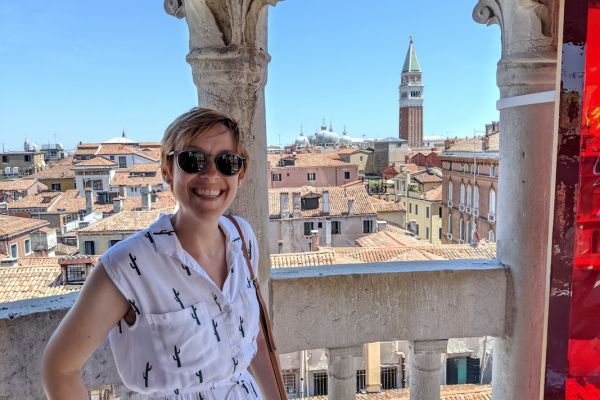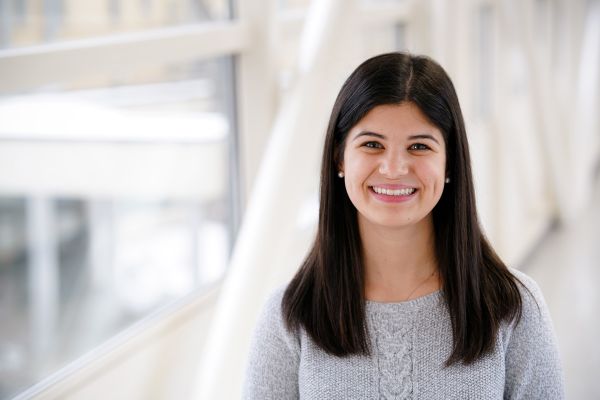Emily Pacer knew cancer was a risk in her family: Her paternal grandmother had cancer four times and her aunt tested positive for carrying the BRCA mutation associated with a higher risk of developing breast cancer. But Emily’s insurance company would not pay for her to have genetic testing unless her father tested positive.
“I talked to my doctor a couple of times about if it is worth getting this test,” her father, Gary Pacer, says. “He wasn’t committal one way or the other. He would do annual checkups; if something comes up we’d catch it that way. I was kind of on the fence.”
Emily persisted and, eventually, her father agreed to have a genetic test done to see whether he carried the BRCA gene mutation as well. Given the rarity of men developing breast cancer, Gary didn’t really think he had much to worry about. “But Emily came to me and said ‘I want to do this.’ My mother passed away in 2019, which got me to thinking, that was her fourth cancer,” he recalls.
Both Emily and Gary tested positive for the BRCA mutation, setting them both on a course of additional screenings to find and detect cancers for which they were at higher risk for developing due to the mutation: prostate, breast, colorectal and others.
After Gary tested positive, Emily received her results as she was starting her first year of graduate school in Albany. She returned home on a holiday break and met with a team of specialists at Roswell Park Comprehensive Cancer Center, including a breast surgeon and ovarian surgeon, so if the time came, she would have people to call.
An accelerated timeline for life-changing decisions
That time came a little sooner than anyone expected.
“A week after my 25th birthday in October 2022, I went in for my first breast cancer screening and that’s when they found out I had a tumor that I did not even see or feel. There were no symptoms,” she says. “I ran a half marathon two weeks prior to that and had set my personal record. Two weeks later I was diagnosed with stage 2 triple-negative breast cancer. It was so deep in toward the chest wall that I never felt it.”
Shortly after that, Emily met with Peter Frederick, MD, FACOG, Clinical Chief of Gynecology at Roswell Park, and Denise Rokitka, MD, MPH, Director of the Young Adult and Oncofertility Program.
A few weeks later, in mid-November, Gary went for a routine prostate cancer early-detection screening. His prostate-specific antigen (PSA) levels, which measure the amount of the hormone associated with prostate cancer, had been increasing but had not previously reached a point that concerned his doctor.
“November 10th was my magic date when I found out I had prostate cancer,” Gary remembers. “Just before that, I had decided to retire. Then it was like, ‘happy retirement, oh, your daughter has cancer and now you do too."
Why choose Roswell Park as a young adult?
These cancers are rare — you need a team that understands the nuances and complexities of treating cancers in young adults.
Thankfully for both Gary and Emily, their cancers were caught relatively early. Gary had surgery at a community practice facility in Williamsville and needed no further radiation or other treatment. Emily had to take a more aggressive and holistic approach, including starting fertility-sparing treatments right away.
“I knew it was an option to preserve your eggs before starting chemotherapy because otherwise they could be destroyed,” Emily says. “I walked into the fertility clinic with my mom and said if I can start today, I’ll do it. If they won’t start me today, forget it, I’d rather start chemo sooner.” She began 16 rounds of chemotherapy immediately after her egg preservation treatment was completed, then opted for a double mastectomy and reconstructive surgery.
Emily recalls sitting in the clinic with her mom after the egg retrieval was completed, thinking about the next steps after the procedure. “You had to do daily shots at certain times, then there was a trigger shot and I had to go in for blood work and scans. I went from basically being pregnant (to stimulate egg retrieval) to going into medically induced menopause for chemotherapy.” When the time comes for her to have children, Emily says her eggs can be genetically tested for the presence of the genetic mutation she now knows she carries.
The power in understanding the risks and living in the moment
While Gary’s surgery completed his cancer treatment, he will continue to be monitored and considered high-risk for other kinds of cancers going forward. Emily will be considered high-risk all of her adult life as well; she already knows her ovaries, which are scanned every six months for the presence of cancer, will need to be removed by the age of 35. But in June 2023, about two years after receiving her genetic screening test results, Emily was told there was no evidence of disease (NED).
The shared experience of receiving a cancer diagnosis and having to reconsider their priorities has made Gary and Emily even closer and helped change their view on what matters in their lives.
Gary and his wife had not been avid travelers before his diagnosis. Now that he’s retired and has a clean bill of health, they’ve gone to Europe and Aruba, with a trip on the calendar for Yosemite National Park this summer. “Now’s the time to do it,” he says.
Emily, who has continued working toward her PhD in environmental sciences, will graduate within the coming year. “Getting my degree is the goal, but as I get closer to graduation, people keep asking me, what’s your dream job? Honestly, I don’t dream of working. I dream of hiking and running and doing other fun things in my life that I want to do,” she says.
Gary’s relatives, along with Emily’s three brothers, understand they might also carry the BRCA mutation. One brother has tested positive; the other two have yet to be tested.
“When I was first approached about BRCA, it was like, what difference does it make if I know,” Gary admits. “Having gone through it, I’m glad we did it. I don’t know if doing it sooner would have made a difference, but the red flags went up to watch and monitor things. If we would’ve just blown things off, who knows how far things would’ve advanced.”
Emily says if she could do things differently, she would have pushed for genetic testing sooner.
“My doctor said if I would’ve waited even six months for breast cancer screening, I would’ve been having very different conversations with my team about my treatment options,” she says. “I would’ve begged the insurance company and my doctors to let me get cancer screening before 25, because I knew I was BRCA positive. What if I would’ve been a lazy student and didn’t do it? Now I have the best possible chance of catching any other cancers earlier if anything happens in the future.”
Should you consider genetic counseling?
A consultation is recommended for persons concerned about their risk for cancer due to a personal or family history of cancer.
Editor’s Note: Cancer patient outcomes and experiences may vary, even for those with the same type of cancer. An individual patient’s story should not be used as a prediction of how another patient will respond to treatment. Roswell Park is transparent about the survival rates of our patients as compared to national standards, and provides this information, when available, within the cancer type sections of this website.
